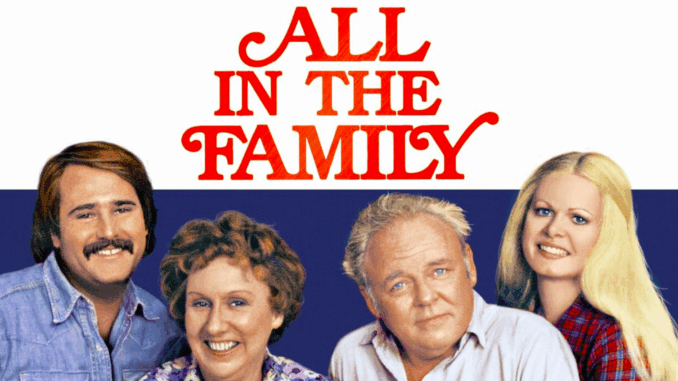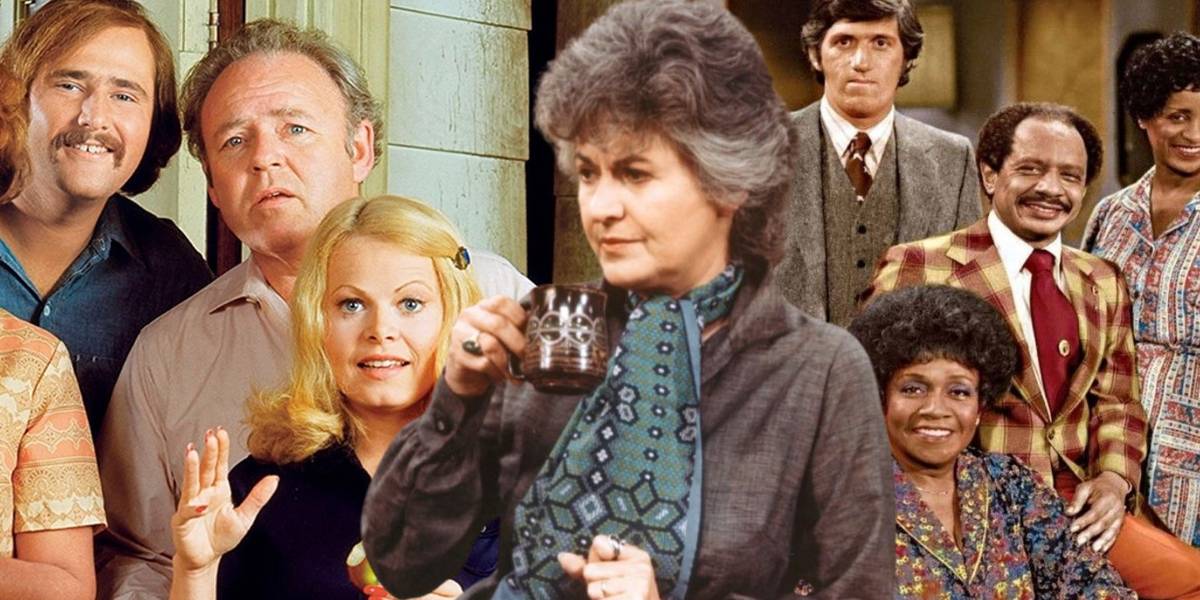
How Archie Bunker’s living room became ground zero for America’s cultural reckoning
In 1971, All in the Family didn’t just debut on television — it exploded. With a blaring theme song, an unfiltered working-class bigot at the center, and a kitchen table where race, gender, war, and politics were all discussed loudly, the show shattered the boundaries of what sitcoms could be.
This wasn’t Leave It to Beaver. This was America, raw and unvarnished.
A revolutionary risk that redefined TV
When CBS aired the first episode of All in the Family, network executives held their breath. Could a show starring a blue-collar, conservative, loud-mouthed bigot possibly work — or would it trigger outrage?
The answer came quickly. Within months, Archie Bunker became both a household name and a national conversation starter. The show was #1 in the ratings and everyone had an opinion. Some cheered its honesty. Others called it offensive. But no one could ignore it.
More than just a sitcom, All in the Family was a cultural mirror — reflecting back the tensions and contradictions of American life in the 1970s.
Archie Bunker: Racist caricature or comic genius?
Carroll O’Connor’s portrayal of Archie Bunker remains one of the most fascinating characters in TV history. Archie wasn’t lovable — he was judgmental, sexist, xenophobic, and stuck in the past. Yet O’Connor gave him layers. His bigotry was often challenged, usually by his liberal son-in-law Mike (Rob Reiner), and even more subtly, by his wife Edith (Jean Stapleton), who softened every hard edge with grace and confusion.
The show didn’t excuse Archie’s beliefs — it exposed them.
In one episode, Archie tells a Puerto Rican repairman that English should be the only language spoken in America. When the repairman politely corrects Archie’s grammar, the audience bursts into laughter. Archie’s ignorance was never hidden — it was weaponized for satire.
Edith Bunker: The quiet voice that often said the most

Jean Stapleton’s Edith was no fool. She may have played the role of the ditzy housewife, but in many episodes, her compassion and common sense cut through Archie’s bluster with a power that couldn’t be dismissed.
In one emotionally gripping episode, Edith helps a young woman who was a victim of sexual assault — a storyline rarely even touched on in TV at the time. Stapleton’s performance showed how All in the Family used comedy as a smokescreen for raw emotional truth.
A sitcom that never played it safe
All in the Family tackled everything from the Vietnam War and racism to menopause, homosexuality, and gun control — all within the confines of a 22-minute format. And yet, none of it felt forced. The laughter came naturally, even as the discomfort crept in.
Other shows followed the rules. All in the Family rewrote them.
It didn’t need glossy sets or elaborate plots. The heart of the show was a Queens living room. The weapon of choice? Dialogue. Sharp, heated, honest dialogue — the kind that felt like it could come from your own family table.
Legacy and impact
Without All in the Family, there would be no Roseanne, no The Simpsons, no Modern Family. Norman Lear’s creation proved that audiences could handle the truth — even when it stung.
Today, as the United States continues to wrestle with division, identity, and social change, All in the Family feels eerily current. It was ahead of its time then — and it may still be ahead of ours now.
Because sometimes, the best way to talk about what divides us… is to laugh at what we all recognize.